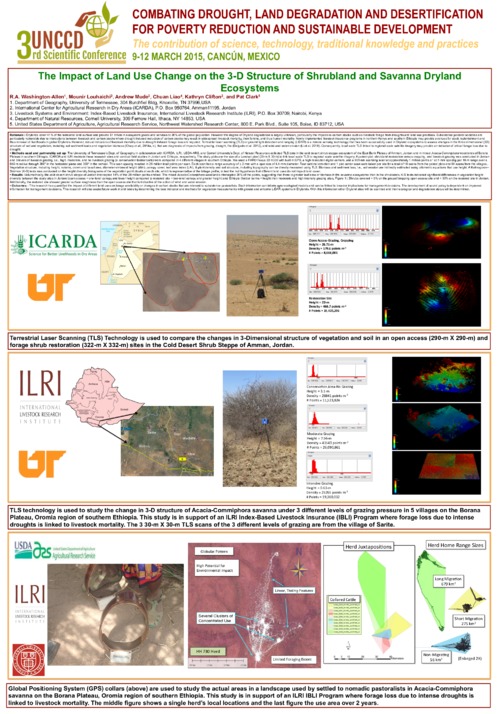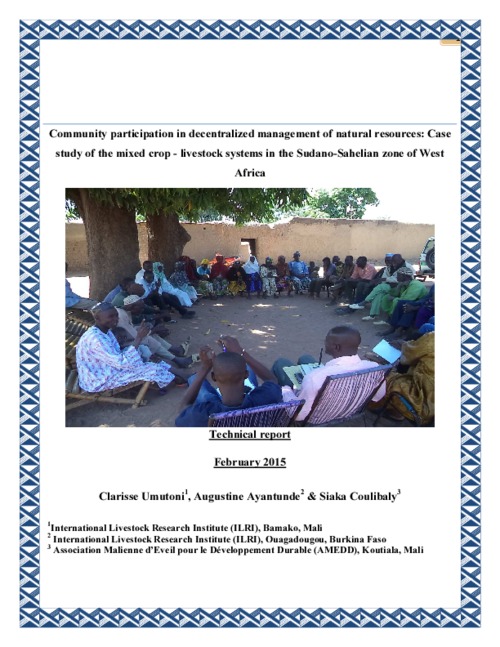Location
The International Center for Agricultural Research in the Dry Areas (ICARDA) was established in 1977. It is one of 15 such centers supported by the CGIAR. ICARDA’s founding mandate to promote agricultural development in the dry areas of developing countries remains highly relevant today.
ICARDA works with a tight focus on the problem-solving needs of resource-poor farmers, achieving this through the in-field delivery of its research outputs. Although global food production has increased by 20 per cent in the past decade, food insecurity and poverty remain widespread, while the natural resource base continues to decline.
International research centers such as ICARDA, which have helped drive previous improvements, continue to deliver new technologies to support sustainable growth in agriculture, and crucially, to work with a wide range of partners to accelerate the dissemination of these technologies.
ICARDA’s biggest strength is its staff – 600 highly skilled men and women from 32 countries. Our research and training activities cover crop improvement, water and land management, integrated crop-livestock-rangeland management, and climate change adaptation.
Other interventions include:
- Water harvesting - supplemental irrigation and water-saving irrigation techniques
- Conservation agriculture methods to reduce production costs and improve sustainability
- Diversification of production systems to high-value crops – horticulture, herbal and medicinal plants
- Integrated crop/rangeland/livestock production systems including non-traditional sources of livestock feed
- Empowerment of rural women – support and training for value-added products.
The ICARDA genebank holds over 135,000 accessions from over 110 countries: traditional varieties, improved germplasm, and a unique set of wild crop relatives. These include wheat, barley, oats and other cereals; food legumes such as faba bean, chickpea, lentil and field pea; forage crops, rangeland plants, and wild relatives of each of these species.
ICARDA’s research portfolio is part of a long-term strategic plan covering 2007 to 2016, focused on improving productivity, incomes and livelihoods among resource-poor households.
The strategy combines continuity with change – addressing current problems while expanding the focus to emerging challenges such as climate change and desertification.
We work closely with national agricultural research systems and government ministries. Over the years the Center has built a network of strong partnerships with national, regional and international institutions, universities, non-governmental organizations and ministries in the developing world and in industrialized countries with advanced research institutes.
THE ‘DRY AREAS’
Research and training activities cover the non-tropical dry areas globally, using West Asia, North Africa, Central Asia and the Caucasus as research platforms to develop, test, and scale-out new innovations and policy options.
Dry areas cover 41 per cent of the world’s land area and are home to one-third of the global population. About 16 per cent of this population lives in chronic poverty, particularly in marginal rainfed areas. The dry areas are challenged by rapid population growth, frequent droughts, high climatic variability, land degradation and desertification, and widespread poverty. The complex of relationships between these challenges has created a "Poverty Trap."
Members:
Resources
Displaying 281 - 285 of 431The Impact of Land Use on the 3D Structure of Vegetation and Soils in a Cold Desert Ecosystem in Jordan
The University of Tennessee’s Dept. of Geography in collaboration with ICARDA, ILRI, USDA-ARS, and Cornell University’s Dept. of Natural Resources collected TLS data in the cold desert shrub-steppe ecosystem of the East Bank Plateau of Amman, Jordan and in mixed Acacia-Commiphora woodlands of Borana Plateau in southern Ethiopia. ICARDA and ILRI maintain these research sites and conduct field studies in Jordan and Ethiopia, respectively. The study plots are the size of a Landsat pixel (30-m X 30-m) to link local scale TLS to regional scale satellite imagery.
A National Framework for Salinity Management: The Case of Iraq Agriculture - Final Report
This final report synthesizes the results of the Iraq Salinity Project, a research partnership between five Iraqi ministries and national agencies and an international team of researchers, led by ICARDA, specializing in land and water management, crop improvement and plant breeding, geoinformatics, and socioeconomics.
Quantification of Land Degradation and Productivity of Agro-Ecosystems under Changing Climate and Land Use
Agro-ecosystems in dry areas are sensitive to changes in climate and land use. The productivities of these agro-ecosystems are highly variable in both spatial and temporal scales. Accurate and up-to-date information on these production systems at farmscape to landscape scales are important for understanding the food security
Report on local conventions governing NRM Mali - Final version Feb 2015
A study was conducted in two districts (Bougouni and Koutiala) of southern Mali to document and analyse existing local conventions governing the management of natural resources in mixed crop-livestock systems. Participatory Rural Appraisal (PRA) and individual interviews were conducted to collect data on the existing local conventions and on the participation of local population in decentralized natural resource management. In total, the group discussions
How Landscape Level Governance and Land Use Planning are Connected: Insights from Case Studies in Marsabit, Isiolo and Makueni
The present document consists of a workshop presentation in which are illustrated three different studies from three different projects, focused on natural resource governance, but all relevant to land use planning.







